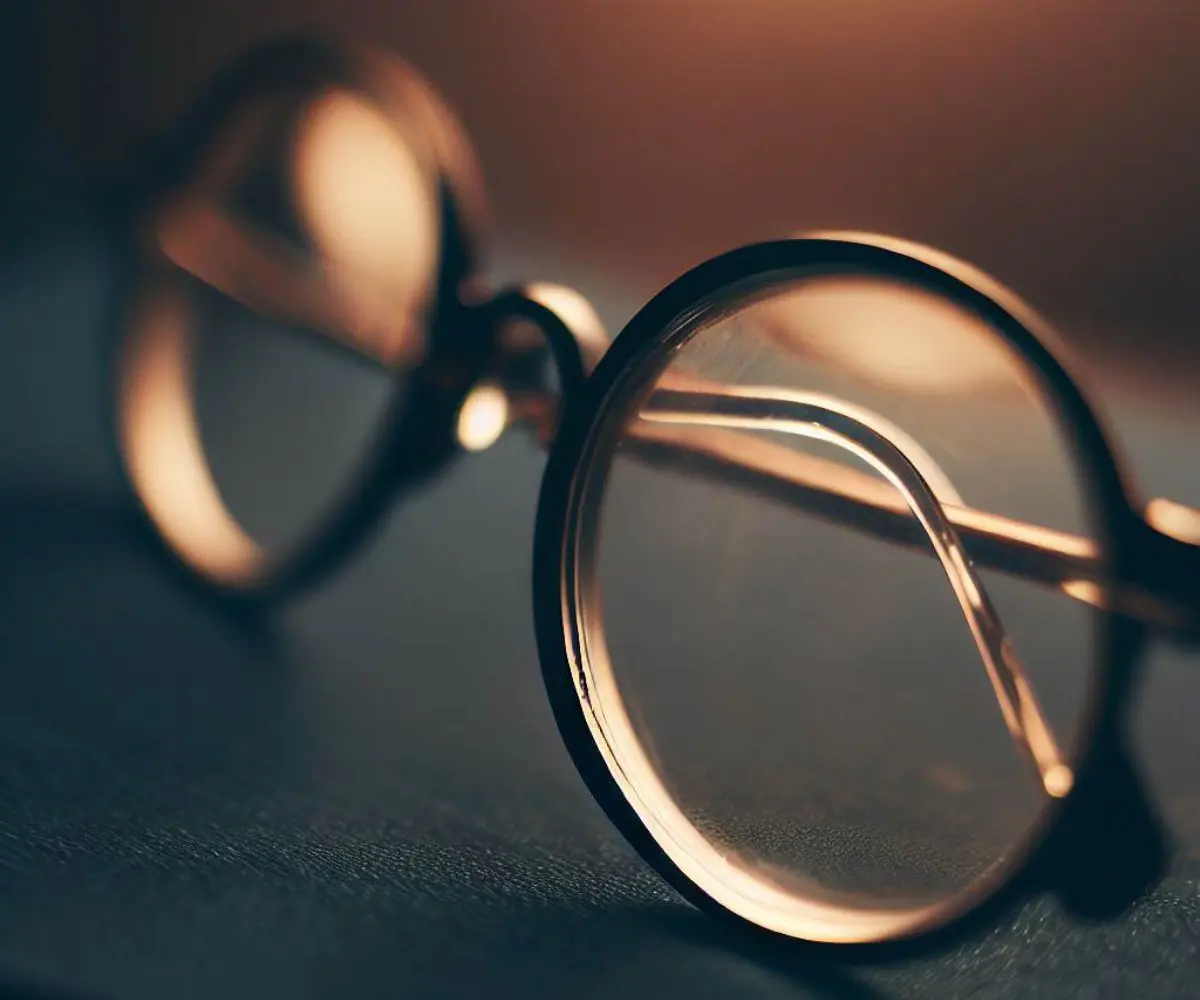When people get reading glasses to help see up close, some wonder if the glasses are simply functioning as magnifiers to make text and images look bigger. It’s a common question – are reading glasses just magnifiers?
If you’ve started having trouble seeing things up close, you may be wondering if over-the-counter reading glasses are essentially just magnifiers. While reading glasses do make things appear larger, there are some key differences between them and magnifying glasses.
What Are Reading Glasses?
Topics Covered In This Article
Reading glasses are eyeglasses with lenses designed to help compensate for presbyopia, an age-related loss of focusing ability. Presbyopia makes it difficult to see small text and images up close, usually starting around age 40.
Reading glasses have lenses that contain refractive power suited for near vision tasks like reading a book, looking at a computer screen, sewing, assembling items, and any other close-up activities. They come in different strengths, such as +1.00, +1.50, +2.00, and so on.
How Reading Glasses Work
Reading glasses help to sharpen your near vision in two ways:
- They provide magnification that makes small objects and text appear bigger. This assists with overcoming presbyopia.
- They also contain lenses with added focusing power (plus diopters) that compensates for the eyes’ decreased ability to accommodate or focus on near objects.
The magnification strength depends on your unique vision needs and the diopter power of the lenses. But essentially, reading glasses act like mini binoculars to help make things look larger and clearer up close.
What Are Magnifying Glasses?
Magnifying glasses are primarily used for image magnification purposes only. They make objects appear bigger and easier to see, but do not contain additional corrective or focusing power for the eyes.
Types of Magnifying Glasses
There are a few different types of magnifying glasses:
- Handheld magnifying glasses – These are held in the hand to magnify text or images as needed. They may have a handle and are available in various diopter strengths like 2x, 4x, 10x magnification.
- Head-worn magnifiers – Hands-free magnifying glasses can be worn like eyeglasses or attached to headgear. These are ideal for hobbies or assembly work that requires the use of both hands.
- Stand magnifiers – Stand or flat magnifying glasses sit atop a surface like a desk to magnify books, documents, maps, photos, and other flat items for enhanced visibility.
How Magnifiers Work
The magnifying effect comes from the shape and power of the lens. As light passes through the convex, curved shape of a magnifying lens, the light rays are refracted and enlarged, causing the object to look bigger.
The lens power, measured in diopters, determines the strength of magnification. For example, a 3x diopter magnifying glass makes an object appear three times larger than its actual size.
The Main Differences
While reading glasses and magnifying glasses may seem almost interchangeable, there are some notable differences:
- Purpose – Reading glasses are intended for everyday extended use to improve vision clarity and focus. Magnifiers are used more sporadically to enlarge images and text.
- Prescription – Reading glasses can be custom made with lenses containing your unique prescription if you have astigmatism or farsightedness. Magnifiers do not contain prescription lenses tailored to your vision needs.
- Lens power – Reading glasses address presbyopia using low-powered lenses measured in diopters. Magnifiers use higher-powered lenses measured in strengths like 2x, 4x, 8x magnification.
- Field of view – Reading glasses allow you to see clearly across your whole field of vision. The magnified field of view in magnifiers is much smaller.
However, one similarity between magnifiers and reading glasses is that stronger powers generally provide more magnification, but may cause some image distortion or eyestrain with prolonged use.
Reading Glasses vs. Magnifier Strengths
As a basic guideline:
- Reading glasses range from +1.00 to about +3.50 strength for mild to moderate presbyopia correction.
- Magnifiers often range from 2x to 20x magnification power.
Here is an approximate comparison between reading glasses and magnifying strengths:
- +1.00 reading glasses ~ 2-3x magnifying power
- +2.00 reading glasses ~ 4-6x magnifying power
- +3.00 reading glasses ~ 8-10x magnifying power
Choosing Between Reading Glasses vs. Magnifiers
When deciding whether simple magnifiers or actual reading glasses would better suit your eyestrain and vision needs, consider these factors:
- Will you primarily use them for short term viewing or daily, extended use?
- Do you prefer an enlarged field of view or a smaller magnified area?
- Do you have astigmatism or farsightedness that requires corrected, prescription lenses?
- Do you need very high magnification strength beyond 3.50 diopters?
Keep in mind that stronger magnification can cause blurry vision, eye fatigue and headaches. If you require high strength beyond 6x magnification for extended reading, a prescription from your eye doctor is recommended for custom reading glasses or bifocals tailored to your needs.
Are Reading Glasses Just Magnifiers?
Reading glasses and magnifiers both make objects appear larger and are useful for improving vision clarity close-up. While magnifiers simply enlarge and do not correct refractive errors, reading glasses contain lenses with added optical power to compensate for presbyopia and let you focus better on near tasks.
So ultimately, magnifying glasses merely make things bigger, while reading glasses both magnify and sharpen vision by reducing blur and eyestrain.

David Doyle is a respected authority in the sphere of gaming and reading glasses. He is renowned for his comprehensive reviews that not only evaluate the products but also provide valuable information to consumers.
Doyle’s deep knowledge of lens technology, frame design, and ergonomics, combined with his gaming experience, has enabled him to provide informative and reliable insights to a wide array of readers.
Through his writings, Doyle has helped countless readers to choose glasses that enhance their gaming and reading experiences while ensuring maximum comfort and eye health.

